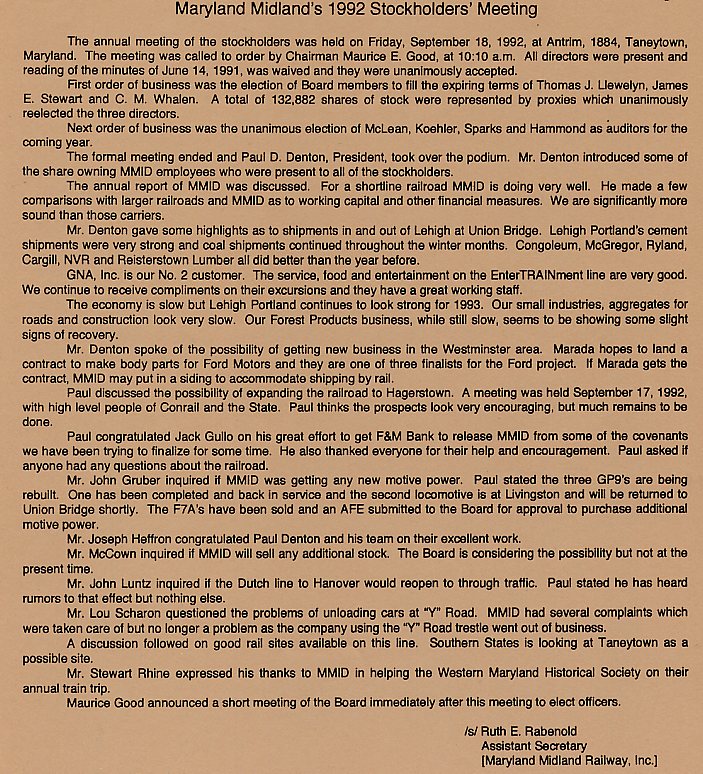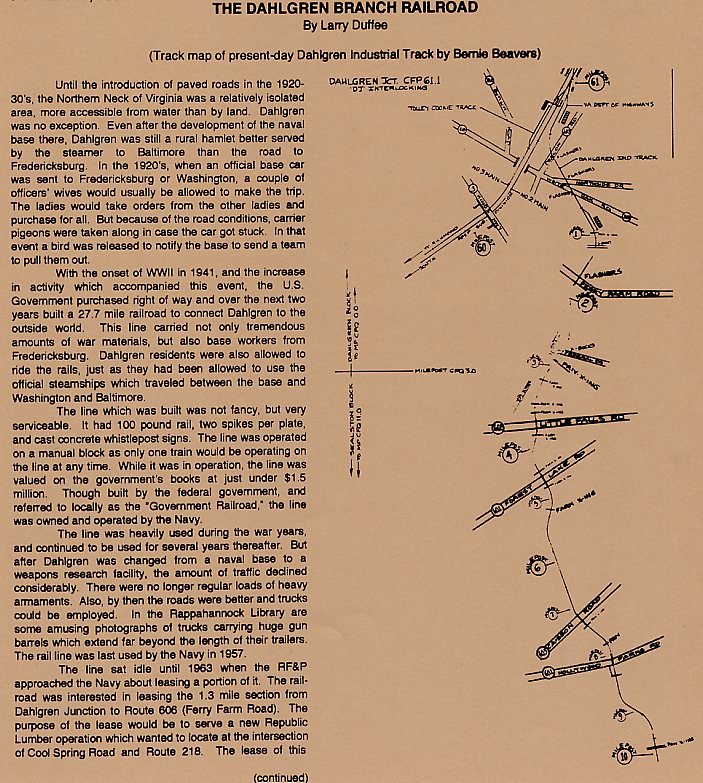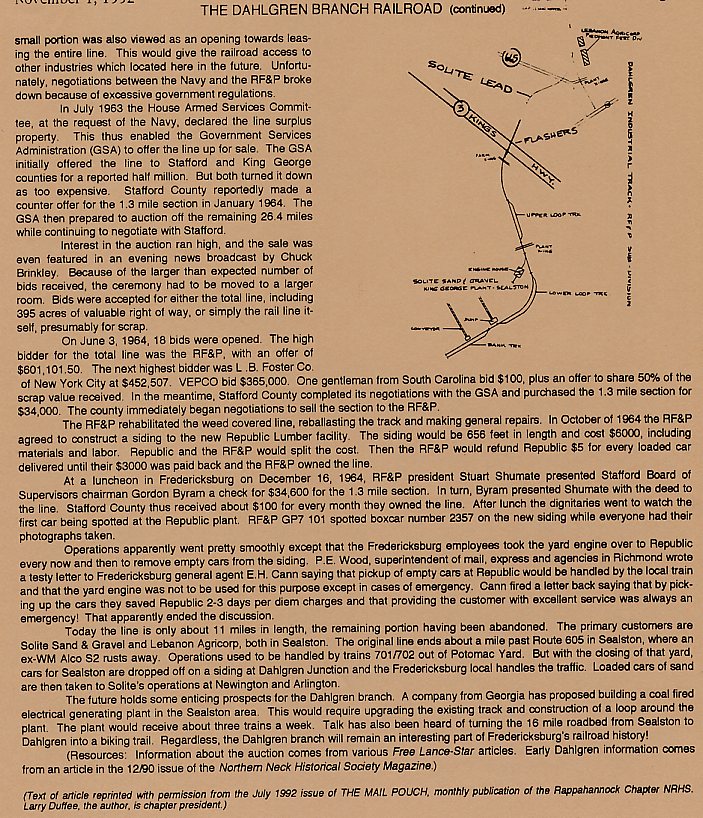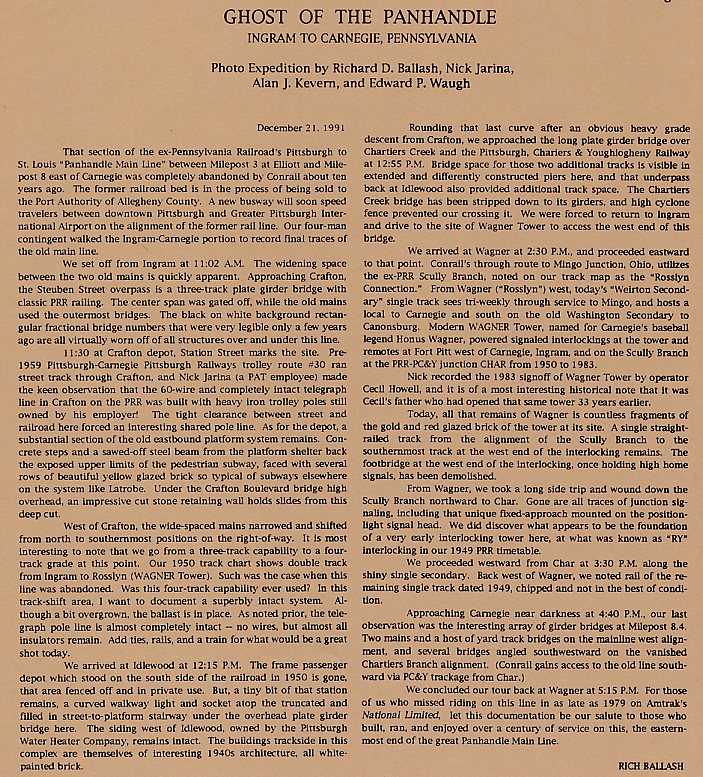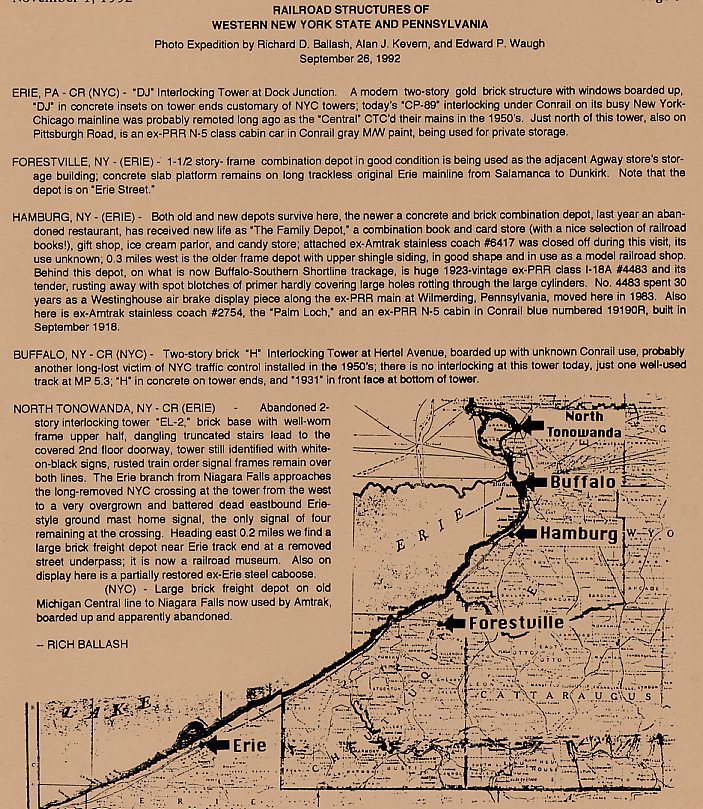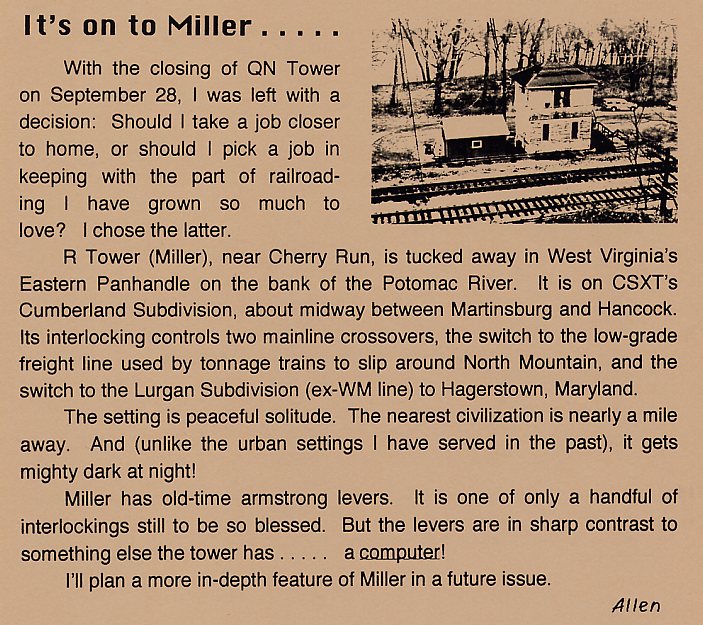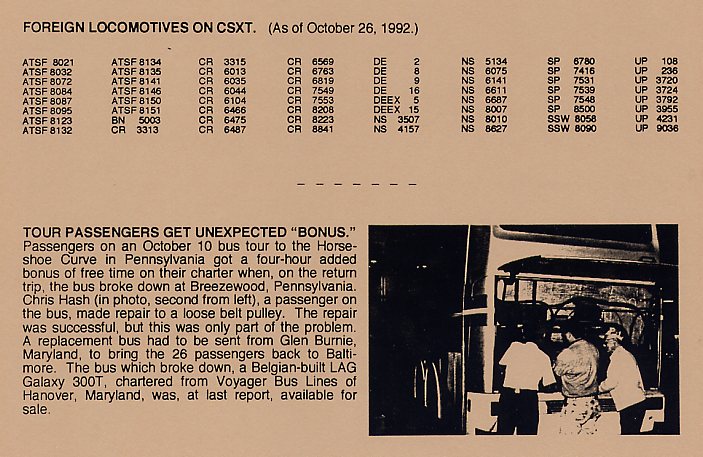
November 1992
Current News
Amtrak plans to begin using Superliner equipment on its Auto Train in 1995.. But to accommodate this equipment, the facility in Sanford, Florida, must be either expanded or replaced.. One location Amtrak is considering is Orlando.. Land in Orlando is more expensive, though, and Sanford officials have met with Amtrak to urge that the Auto Train facility remain in their city.
The Swedish X2000 tilt-technology train set for service testing by Amtrak on the Northeast corridor arrived by ship in Baltimore on October 20.
The U.S. Department of Transportation has designated Washington, D.C., to Charlotte, N.C., as a rail corridor to receive initial federal funding for a potential high-speed train route.
Coca-Cola will build a $125-million production and distribution facility on a 120-acre site in Howard County, Md., for completion in the fall of 1994.. It will be served by CSXT.
Plans to build a new football stadium at Potomac Yard, Va., have been abandoned.
MARC unit 31 has been delivered.
CSXT FP7B unit 119 has been retired.
A Letter from Mr. Claytor
Dear Mr. Brougham:
Thank you for your September 11 letter, along with a copy of the [September] edition of the Bull Sheet.
First, I want to apologize for your disappointment in the dining service you experienced on your trip to and from Minot, N.D.. This summer we began increasing the frequency of heavy cleaning on all of our food-service cars; instead of every 120 days, food cars are now thoroughly cleaned every 60 days.. That is in addition, of course, to the cleaning we do at the end of each trip.. The new cleaning routine means a healthier, more comfortable environment for our customers but, initially, it has disrupted our already limited dining car fleet assignments.
We have had to make some temporary changes in car assignments on some trains, running dinettes where we would normally run full dining cars, or running a Superliner lounge on one leg of a route and a dining car on the other leg.. The good news is that these measures are temporary, and we are making every effort to improve our productivity so that we can clean more cars faster and return them to service sooner.
Second, I want to commend you and your friend, Alan Crumbaker, for your dedication and persistence in getting the lock on the restroom fixed on car 25111.. Your extraordinary effort should not have been necessary; the repairs should have been made when the problem first occurred.. However, I am grateful to both of you for starting to repair the broken latch yourselves and seeing that the job was completed in Washington.
Thank you for giving me the opportunity to read about your trip and to respond.
- W. GRAHAM CLAYTOR, JR.
- President
- Amtrak
The Five Missing Screws - An Update
The September 1992 issue to the Bull Sheet, in the article 'By Amtrak to Minot,' mention was made of a problem with the locking latch to the sliding door of the large lavatory of Amfleet II coach 25111 conveyed in the eastbound Cardinal.. Persons using the lavatory would close the door, go through the motions of locking the door, thinking that the door was locked, and then finding out that the door was not locked after all.. This caused more than one embarrassing episode, according to Alan Crumbaker, a passenger sitting across from the lavatory.. He attempted to make a repair to the defective latch.. When this failed, he undertook the role of traffic cop, and he posted signs on both sides of the door explaining the problem to users.
It developed that the problem with this locking latch was not a new one.. It had apparently been this way for at least two weeks prior to that, and despite a defect report on the problem, it was not fixed until two days later when Alan made a special trip - with tools in hand.
Alan, disturbed that such a problem could have remained uncorrected, wrote a lengthy letter to Amtrak president Graham Claytor.
Mr. Claytor replied to Alan's letter with "sincere apologies" for the inconvenience, and explained that the matter had been taken up with Amtrak's superintendent of quality control.. The problem did "not represent the standards of excellence we strive to maintain for our passengers," wrote Mr. Claytor.
Enclosed in the letter to Alan was a gesture of good will.. It was in the form of an Amtrak transportation credit in the amount of $50.00.

